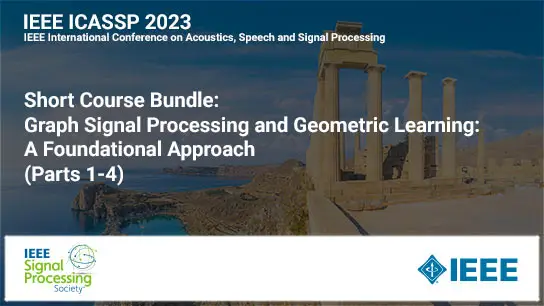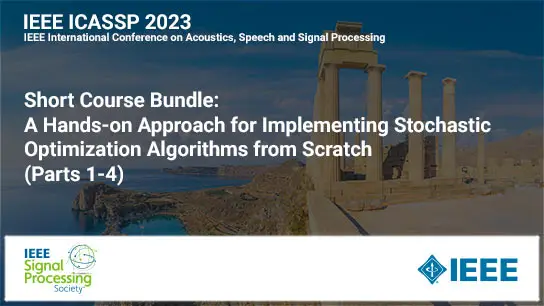USER SCHEDULING USING GRAPH NEURAL NETWORKS FOR RECONFIGURABLE INTELLIGENT SURFACE ASSISTED MULTIUSER DOWNLINK COMMUNICATIONS
Zhongze Zhang, Tao Jiang, Wei Yu
-
Members: FreeSPS
IEEE Members: $11.00
Non-members: $15.00Length: 00:10:55
11 May 2022
Reconfigurable intelligent surface (RIS) is capable of intelligently manipulating the phases of the incident electromagnetic wave to improve the wireless propagation environment between the base station (BS) and the users. This paper addresses the joint user scheduling, RIS configuration, and BS beamforming problem in an RIS-assisted downlink network with limited pilot overhead. We show that graph neural networks (GNN) with permutation invariance and equivariance properties can be used to appropriately schedule users and to design RIS configurations to achieve high overall throughput while accounting for fairness among the users. As compared to the conventional methodology of first estimating the channels then optimizing the user schedule, RIS configuration and the beamformers, this paper shows that an optimized user schedule can be obtained directly from a very short set of pilots using a GNN, then the RIS configuration can be optimized using a second GNN, and finally BS beamformers can be designed based on the overall effective channel. Numerical results show that the proposed approach can utilize received pilots more efficiently than conventional channel estimation based approach.



